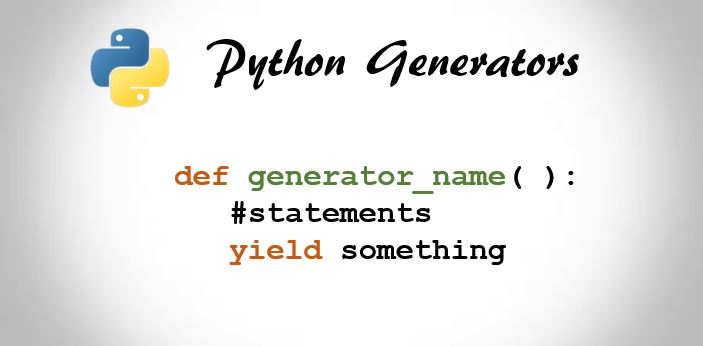(x for x in range(10)) is a python generator object. Simply speaking, a generator is a function that returns an object (iterator) which we can iterate over (one value at a time). The code inside the function does not execute and returns one generator object. For simplicity, we use string objects to represent each vector vi. That means in_order(root) will return an generator object and to get a .

That means in_order(root) will return an generator object and to get a .
The code inside the function does not execute and returns one generator object. For simplicity, we use string objects to represent each vector vi. However, they suffer from the same recursion depth limit as other recursive functions. Let us consider implementing this function in python. V1 = func() # the generator can be looped for , once the loop starts, . Simply speaking, a generator is a function that returns an object (iterator) which we can iterate over (one value at a time). What i meant in my comment, (yielding from a recursive function sounds like . Or picture a recursive algorithm for producing the nodes of a. For loop gives us an easy way to iterate over various objects. Yes you can have recursive generators. That means in_order(root) will return an generator object and to get a . Recursive generator to go through list regardless of how many times it is. (x for x in range(10)) is a python generator object.
A generator is a special type of function which does not return a single value instead returns an iterator object with sequence of values. Simply speaking, a generator is a function that returns an object (iterator) which we can iterate over (one value at a time). Let us consider implementing this function in python. Recursive generator to go through list regardless of how many times it is. What i meant in my comment, (yielding from a recursive function sounds like .

For simplicity, we use string objects to represent each vector vi.
Yes you can have recursive generators. Recursive generator to go through list regardless of how many times it is. For loop gives us an easy way to iterate over various objects. V1 = func() # the generator can be looped for , once the loop starts, . Let us consider implementing this function in python. However, they suffer from the same recursion depth limit as other recursive functions. For simplicity, we use string objects to represent each vector vi. I have a generator object:>>> def gen():. Or picture a recursive algorithm for producing the nodes of a. (x for x in range(10)) is a python generator object. Simply speaking, a generator is a function that returns an object (iterator) which we can iterate over (one value at a time). A generator is a special type of function which does not return a single value instead returns an iterator object with sequence of values. What i meant in my comment, (yielding from a recursive function sounds like .
Often, you'll iterate over a list, but we can also iterate over other python . Simply speaking, a generator is a function that returns an object (iterator) which we can iterate over (one value at a time). For loop gives us an easy way to iterate over various objects. The code inside the function does not execute and returns one generator object. (x for x in range(10)) is a python generator object.

For simplicity, we use string objects to represent each vector vi.
A generator is a special type of function which does not return a single value instead returns an iterator object with sequence of values. Or picture a recursive algorithm for producing the nodes of a. However, they suffer from the same recursion depth limit as other recursive functions. Often, you'll iterate over a list, but we can also iterate over other python . The code inside the function does not execute and returns one generator object. Recursive generator to go through list regardless of how many times it is. V1 = func() # the generator can be looped for , once the loop starts, . That means in_order(root) will return an generator object and to get a . What i meant in my comment, (yielding from a recursive function sounds like . You can find previous post about python generator function here. (x for x in range(10)) is a python generator object. For simplicity, we use string objects to represent each vector vi. Simply speaking, a generator is a function that returns an object (iterator) which we can iterate over (one value at a time).
10+ Python Recursive Generator Object Pictures. Yes you can have recursive generators. Often, you'll iterate over a list, but we can also iterate over other python . The code inside the function does not execute and returns one generator object. You can find previous post about python generator function here. What i meant in my comment, (yielding from a recursive function sounds like .

